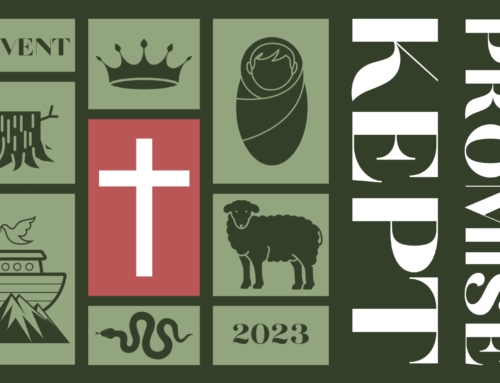Six Books Every Christian Should Own
By Pastor Josh Wamble
Believers in 2023 are in a unique position. We have more access, easier access, and less expensive access to bibles (in many different English translations) and other Christian writings than at any other point in history!
Not all believers need to be scholars, but we should all have an interest in studying and understanding the bible. If God has spoken to us in his word, we should work hard to understand it that it might have an impact on the way we live. Another peculiar blessing of our place and time is that there are lots of other books and tools available that can help us to do just that. Below are six suggested books that every Christian or Christian family should own.
- Bible
It is somewhat obvious that all Christians should have a bible. However, not all bibles are of the same quality or even usefulness. Maybe we will post an article here in the near future explaining the different types of bible translations and translation philosophy, but we don’t have room to go into those details in this article. It would be too long.
Every believer should have a good bible that is conducive to quality bible study. This means a bible translation that is in what is called the “formal equivalent” bible translation philosophy. In simple terms, this means a bible that is a “word for word” translation instead of a “thought for thought” translation or paraphrase. (Thought for thought translations or paraphrases are useful in some contexts and for some purposes, but they are not ideal for serious bible study.) Formal equivalent/word for word translations include the ESV, NASB, HCBS/CSB, KJV, NKJV, and etc.
A bible with cross references is helpful also. These bibles have cross references printed either in a center column or at the bottom of the page. They help readers make connections between different parts of the bible in a few different ways. They point out other places in the bible that deal with the same topic. In the NT, they point out where to find original OT passages that are being quoted. In the gospels, they point out where to find the same event being described in the other gospel accounts.
Finally, good study bibles can be very helpful. There are many different study bibles, and not all of them are of the same quality. The ESV study bible is very good as are Life Application study bibles that can be found in multiple translations. The Reformation Study bible is a good resource that can also be found in different translations. The study notes in these bibles help us to understand the context, history, and meaning of bible passages. Study bibles and some reference bibles also provide introductions to each book that can help us understand their context and the history that they are set in.
One caveat needs to be said about reference and study bibles. The text of the bible is inspired, infallible, and inerrant. It is absolutely true. However, the study notes, the introductions, and even the cross references are not inspired. They are the work of one person or a committee of people (depending on which bible it is). If it is a good study bible, then we can generally rely on them, but we should still test them against the other parts of the bible and make sure that we are convinced that they are reliable and not just take them as accurate without thinking the issues through for ourselves.
- Bible Concordance
Concordances are essential tools in studying the bible. A concordance is essentially a large index of the bible. It allows you to look up a word and see every verse where that word occurs. Because different translations may different wording, many concordances are published as concordances of specific translations. This tool can be really useful to the believer who is trying to understand what they bible says about specific topics, how a certain word is used by different biblical writers, and how different verses or passages are related through common words, expressions, or phrases.
- Bible Dictionary
Every believer or Christian family should also have a good bible dictionary and/or bible handbook. Bible dictionaries and bible handbooks are usually one volume books that are similar to encyclopedias. They contain short articles explaining different words used in the bible, names mentioned in the bible, measurements used during biblical times, and certain animals and even plants that are mentioned in the bible. Bible dictionaries and handbooks also help us to understand the geography and history of the places mentioned in the bible. Some even include maps and other illustrations. There ae several good bible dictionaries and handbooks put together by different Christian publishers such as Crossway, Broadman and Holman, and Zondervan.
- Bible Commentary
Commentaries can be very helpful to believers as well. Commentaries are extended explanations of the bible. They come in two types. First there are one volume commentaries. These are large books that offer comments and explanations on either the whole bible or either the old or new testaments. These types of commentaries are attractive because you can purchase one or two books that cover the entire bible. For this reason, they are convenient and relatively inexpensive. The downside of single volume commentaries is that they are usually written by one person; so, the result is a single person’s perspective on every book in the bible. Because of this, sometimes, certain idiosyncrasies, quirks, and “hobbyhorses” or pet topics of the author can influence how the passage is explained. Nevertheless, there are some good one volume commentaries available including Matthew Henry’s commentary (though it is about 300 years old) The John MacArthur Bible Commentary, The New Bible Commentary: 21st Century Version (Commentary on different books and sections in this commentary are written by 15-20 different authors), and others.
Other commentaries come in sets. These sets are produced by a specific publisher and overseen by an editor or group of editors. In commentary sets, each commentary covers a single book of the bible or a small group of books. The benefits of a commentary set include more space being devoted to each book of the bible so that specific verses and passages can be explained in more detail. Another benefit is that each volume is written by a different person, and usually it is a scholar who has a specific expertise in that particular book or section of the bible. The downside of a commentary set is that they are usually fairly expensive; however, they can be purchased one volume at a time spreading the cost out over a extended period of time. Some good and relative less expensive commentary sets include the Tyndale Old Testament Commentary and Tyndale New Testament Commentary sets and the Christ Centered Exposition commentary set.
- Systematic Theology
A good systematic theology is another type of reference book that every Christian family should own. Systematic theologies are organized around topics. They take a specific topic, look at all the bible references to that subject, and try to systematize those references into a summary of all that the bible has to say about it. They include chapters or sections that cover what the bible says about God, creation, humanity, sin, Jesus, salvation, the Holy Spirit, the church (including church membership, church government structures, baptism, the Lord’s supper, etc.), judgment, the end times, heaven, hell, and etc. Most believers are not going to read straight through a systematic theology (most are well over 1000 pages long), but they are good for looking up a specific topic to get a good understanding of the bible’s teaching and to answer questions. Most also include indexes for looking up specific bible references or words. There are several good systematic theologies written by Baptist scholars from a Baptist perspective. Wayne Grudem has one called Systematic Theology. He has also condensed it down to a smaller version called Bible Doctrine, and an even smaller paperback version called Christian Beliefs. Another Baptist scholar named Millard Erickson has written a good systematic theology called Christian Theology. There is also a condensed version of this book called Introducing Christian Doctrine.
- Hymnal
Every believing family should also own a hymnal. Singing is an important part of the Christian life. If you remember, in the gospel accounts when Jesus and his disciples celebrated the first Lord’s Supper, it says that they sang a hymn together. The book of Acts also records many times when the early believers sang songs together in their worship of God—both in gathered corporate services and in homes. Many of the NT letters also address singing together. In fact, as you know, the longest book in the bible (Psalms) is a collection of sons to and about the Lord. We are called to worship God together and individually. We should be worshipping together as families as well.
There are different types of hymnals available. Some recently published hymnals include older established songs as well as newer songs. The words of the songs we sing also have a teaching function. The things I believe are rooted in what the bible says, but the way that I think of those beliefs often come to mind in the words of good Christian songs that I have learned over the years worshipping with other believers.
Online Resources
Finally, many of the resources discussed above can be found online. There are some really good websites that give the user the ability to read multiple translations, commentaries, histories, geographic tools, and etc. These websites also allow the user to search the bible for different words or phrases taking the place of a written concordance. There are also hymnals that can be accessed online, and of course many hymns and worship songs are available on YouTube as well. A couple of the best online bible study websites are biblehub.com and biblegateway.com. Hymns and other songs can be found at hymnal.net and hymnary.org.
Online resources can be very convenient and cost effective. Almost everyone has access to internet resources via computer, tablet, phone or all three these days. However, of the six reference tools listed above, It is almost essential to have at least two of them as a hard copy—a good bible to study from and a good systematic theology book.
It is essential for believers to read, study, and know what the bible says. It is God’s word to us, and we should not neglect it. May these tools help us to know it better so that we might live it out in our own lives and through the life of our church!




